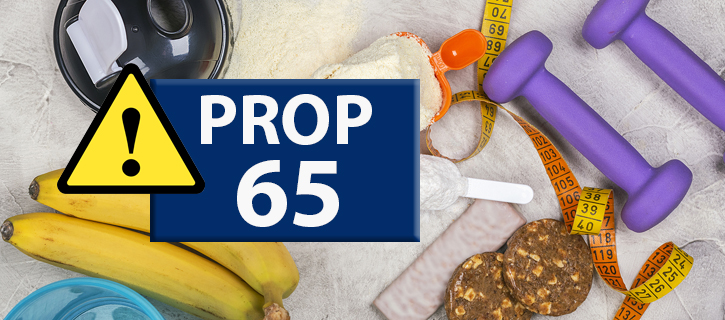“Warning: this product may contain chemicals known to the State of California to cause cancer, birth defects, or other reproductive harm.”
You’ve probably seen this warning before, even if you weren’t paying much attention to it. This warning is a result of California’s Proposition 65, officially known as the Safe Drinking Water and Toxic Enforcement Act of 1986. This act requires anyone doing business in California to provide these warnings on any product or at any location where one of more than 900 chemicals covered by these guidelines are present.
If you’ve ever pumped gas in California, this warning or a similar one is posted all over. But even if you’ve never been anywhere near California, there’s a good chance you’ve come across it. From alcohol containers and cigarette boxes to thousands of things you might not think of like a bag of potato chips that contains an ingredient on the list, this label appears on products throughout the country.
I’m Not in California: Why Does Prop 65 Matter to Me?
Any products that contain substances on the Prop 65 list require these warning labels if they are sold in California — and that includes products sold on the internet and shipped to California mailing addresses. Even if a business isn’t selling directly to customers in California, businesses could potentially still face legal liability if their products end up being resold or used in California.
In fact, there is an entire cottage industry that has sprung up around Prop 65, with individuals and organizations who search for products that violate the Act and file lawsuits that can be costly for businesses. Even if a lawsuit ultimately fails, a business could be forced to temporarily stop sales and distribution or recall products to properly label them. And then there’s the cost of defending against such a lawsuit. In some cases, businesses take a “better safe than sorry” approach, even if they are not currently selling their products in California.
THC Added to Prop 65 List
While cannabis smoke has been on the Prop 65 list since 2009, THC was added in 2020, and the requirement becomes enforceable on January 3, 2021. With more states legalizing cannabis, either medically or recreationally, interstate commerce and business opportunities are rapidly expanding.
For businesses selling or manufacturing THC products for sale in California or those providing product liability coverage, now is the time to review product labels and make sure any products that may be subject to Prop 65 requirements are labeled appropriately.
Increased Liability Exposure for CBD Products
While CBD and other non-psychoactive cannabinoids like CBG have not been added to the Prop 65 list, products that contain any traceable amount of THC are subject to the requirement. Since these products are also derived from cannabis or hemp plants and often contain small but measurable amounts of THC, the vast majority of CBD and other cannabinoid products could still be subject to Prop 65 requirements. There is currently no safe amount that would exempt these products from a Prop 65 label.
Related: 5 Things You Need to Know About Liability Insurance for CBD and Hemp Products
Prop 65 and Product Liability Insurance
When a business is considering whether or not to add a Prop 65 warning label to their product, it helps to have an expert who can offer them legal guidance. The same is true of insurance brokers looking to assess a company’s liability exposure.
Admiral Insurance Group is a leading provider of product liability insurance for cannabis, CBD, CBG, nutraceuticals and dietary supplements, and other products that may require Prop 65 warning labels.
If you are a wholesale broker in need of an insurance partner with expertise in Prop 65 exposure, contact us to become an appointed broker. If you are a retail agent or broker with clients in these industries, we encourage you to connect with one of our wholesale broker partners.
Products and services are provided by one or more insurance company subsidiaries of W. R. Berkley Corporation. Not all products and services are available in every jurisdiction, and the precise coverage afforded by any insurer is subject to the actual terms and conditions of the policies as issued. Certain coverages may be provided through surplus lines insurance company subsidiaries of W. R. Berkley Corporation through licensed surplus lines brokers. Surplus lines insurers do not generally participate in state guaranty funds and insureds are therefore not protected by such funds.

.png?width=214&height=60&name=bg-nav@2x%20(1).png)
